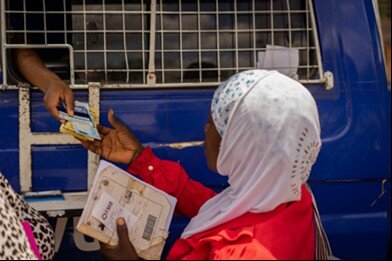
The Irish Government has provided €1.5 million (K1.3 billion) to the Government of Malawi’ Social Cash Transfer Programme known as Mtukula Pakhomo.
This is the first tranche disbursement of a €2.7 million commitment that the Embassy of Ireland will make to the Government in the year 2020.
The funds come at a time the world and particularly Malawi is fighting the Covid-19 pandemic.
It is hoped that the vulnerable households of the SCTP will use the cash transfers to cushion themselves from the severe and negative impacts caused by the Coronavirus.
Reports indicate that Covid19 is wreaking health and economic turmoil worldwide.
These impacts are all the more pronounced in low-income countries like Malawi, where the economic crisis caused by the pandemic may hit harder than the virus itself.
Ambassador of Ireland to Malawi Gerry Cunningham said social protection is a key policy instrument to protect the most vulnerable and mitigate the social and economic impact of Covid-19.
“I am happy that our work in Malawi social protection is one of our main key interventions where we reach the furthest behind first. We are pleased that the Government of Ireland is able continue to work with the Republic of Malawi especially in these difficult times by ensuring that SCTP beneficiaries continue to receive their much needed cash transfers and on time,” he said.
In 2016 Ireland entered into a second phase of a 5-year mutually beneficial multi-annual agreement with the Malawi Government.
The programme has been successfully implemented in Ntcheu and Balaka Districts by Ministry of Gender, Community Development and Social Welfare and the Ministry of Economic Planning and Development providing technical oversight.
A total of 24 448 households are covered in Ntcheu and Balaka districts in the Mtukula Pakhomo programme.
Payments are done electronically through FCB and FDH Bank and each beneficiary has an ATM card.
Acording to the Embassy, it is impressed with the measures that the Ministry of Gender has put in place to ensure that beneficiaries are kept safe and are prevented from catching the virus and continue to receive their payments on time.














